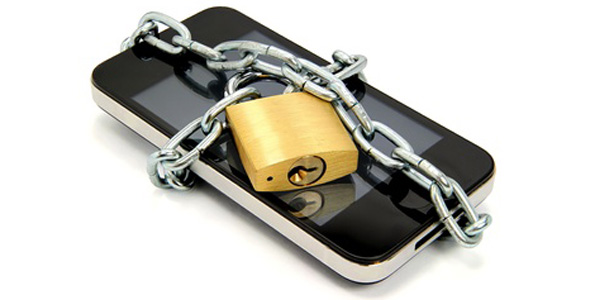We use smartphones to do just about everything, from mobile banking to emailing, and from shopping online to gaming.
It is no wonder that the smartphone is now the centralized source for all of your information and with this comes big risks, and the more you’ve connected and stored, the more you stand to lose. In fact, in the last year alone, at least 7.1 million phones were lost or stolen.
Fortunately for you, we’ve put together 7 steps to keep your phone, and all of its sensitive data, secure.
1. Use a Passcode
Obvious? Yes. But according to a Consumer Reports survey, 64% of us don’t use our passcodes. Having no password is essentially the same as handing over all of your personal information to anyone who holds your phone.
When you set up your passcode, try not to use really obvious codes such as your birthday or your anniversary date. Never share your passcode with anyone, and don’t reuse passwords from other sites or devices.
2. Choose Your Apps Wisely
With so many unknown third party providers out there, it can be difficult to know how private and secure it may be. For that reason, it’s best to go through a trusted app store like iTunes, Android Market or Amazon, and to thoroughly check reviews before downloading any app and entering your personal information.
3. Be Careful What You Click
For whatever reason, people are three times more likely to click on suspicious links on their cell phone than on a PC. Be sure to look more carefully at the URL, especially if they’re asking you to enter personal information. Exercise good judgement when deciding whether or not to click on a link. Does it look legit or does it look like it could be a scam?
4. Remote Wiping
Remote wiping is the best thing to have especially in cases when you lose or have you phone stolen. Essentially, remote wiping allows you to erase your important data from afar and it’s relatively easy to do on most devices. For example, for iPhone users, all you have to do is enable “Find My Phone” on the device and sign up for an iCloud account, which is where you will be able to wipe you data from a distance.
5. Keep Software Up to Date
Smartphone software updates are not uncommon and they often patch security and privacy holes. Keeping your software up to date will mean you’ll have the very latest solutions which also means your smartphone is even more protected.
6. Use Security Applications
Both Spyware and Malware are becoming more and more of a problem for mobile phone users. Security software are available for your phone, just like they are on your computer, and help to protect your personal data against any unbeknownst mischief. Make sure that you keep this software up to date.
7. Back Up Your Phone Regularly
Backing up your phone’s data may be the best thing you’ve never done. Backing up your phone means you’ll always have access to all of your photos, music, apps and whatever else. This is of course important in case your phone gets lost or stolen, so make sure to back-up at least once a week for the best results. You may even want to consider using automatic syncing options available in some cloud programs.
We Want to Hear From You
Send us an email at enquiries@advancedcomputers.co.nz or post onto our Facebook Page and let us know if these tips were valuable to you. Do you have any tips which may help others stay protected on mobile devices?
If you need any help backing up your phone or recovering lost data then feel free to call us today on 09 4448823 or send us an email at enquiries@advancedcomputers.co.nz for expert advice.



